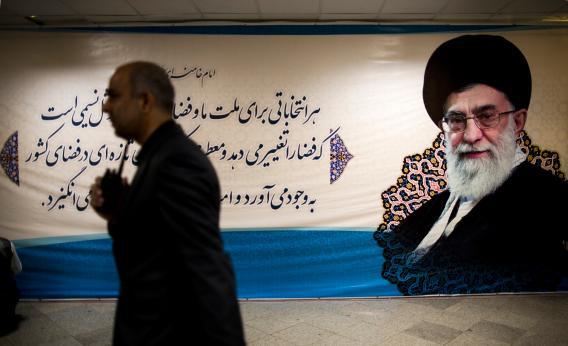As is the fashion in this era of global diplomacy, Iranian Foreign Minister Javad Zarif weighed in on events in Syria on his Facebook page today:
1-Any use of chemical weapons must be condemned, regardless of its victims or culprits. This is Iran’s unambiguous position as a victim of chemical warfare. But has it always been the position of those who are now talking about punishing their presumed culprit? How did they react when civilians in Iran and Iraq were victims of independently established massive and systematic use of advanced chemical weapons by their then-friend Saddam Hussein? So, it is prudent to take their assertions at face value now, particularly since the circumstances and available evidence indicate the likelihood of the use of chemical agents by extremist groups.
2-Violence, repression, killing and extremism are repugnant crimes and every actor with influence in Syria must compel the parties to come to the negotiating table. But is a threat to use force the solution? Or does it represent the paradigm and the mentality that have helped to create this humanitarian tragedy and political catastrophe?
3- Are all options really on the table as the US president repeatedly declares? Is every nation with military might allowed to resort to war or constantly threaten to do so against one or another adversary? Isn’t the inadmissibility of resort to force or threat of force a peremptory norm of international law? Is there any place for international law and the UN Charter at least in words if not deeds?
The first point holds with the recent pattern of Iranian public statements. Defending a regime accused of using chemical weapons is a strange position for Iran given its own history, and so far the Iranian government has consistently condemned chemical weapons use while avoiding attributing blame for it.
Supreme Leader Ayatollah Ali Khamenei has warned that a U.S. intervention would be a “disaster for the region” and Revolutionary Guard Chief Mohammad Ali Jafari suggest that attack could lead to the “immediate destruction of Israel.”
But Iranian leaders have stopped short of actually vowing to take action. As the Guardian’s Tehran Bureau blog has noted, the Iranian government has framed the consequences of U.S. intervention in terms of divine retribution rather than an actual Iranian response. “God willing, the flames of this conflagration will set Zionism’s robe ablaze,” Gen. Masoud Jazayeri, the deputy chief of staff of Iran’s armed forces said, in one representative statement.
This is notable given that Iran and Syria signed a mutual defense pact in 2005, and about a year ago a spokesman for the Revolutionary Guard Corps vowed that “In the case of American stupidity and a military attack by this country on Syria, the joint military pact of Syria’s allies would be implemented.” Some have suggested Iran could retaliate by trying to shutting down shipping through the strategically important Strait of Hormuz or attacking Israel through its proxy, the Lebanese Shiite militia Hezbollah.
But assuming a U.S. strike is limited in both timing and targets, it also seems likely that Tehran could limit its response to condemnations, particularly as the threat of a U.S. strike is very much a factor in Iran’s own politics.
